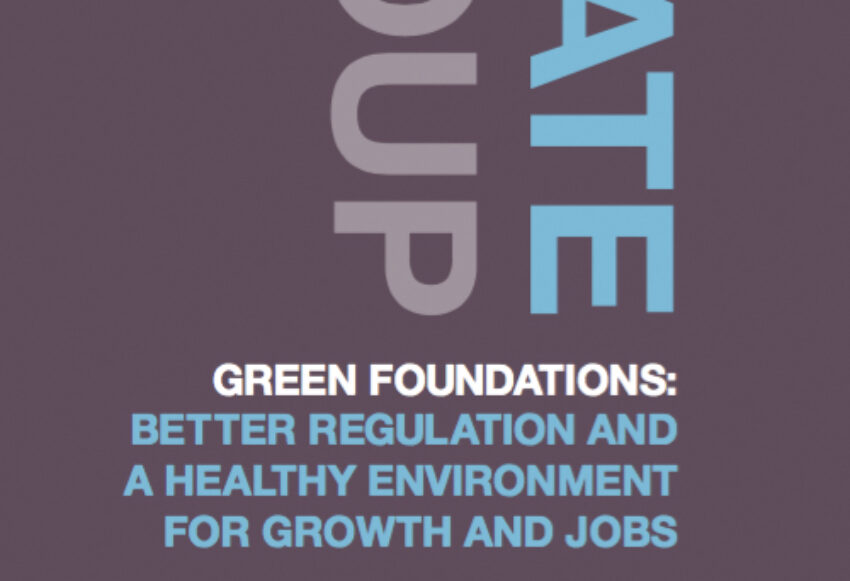REPORTS & BRIEFINGS | 06/06/2006
Green Foundations: Better regulation and a healthy environment for growth and jobs

The UK is one of the leading advocates of the better regulation agenda.
This is aimed at reducing regulatory burdens on UK businesses by cutting unnecessary red tape and financial costs, thus removing obstacles to industrial efficiency, productivity and profitability. Regulatory reforms in the UK mirror similar initiatives in the EU in the framework of the Lisbon Strategy, launched in 2001.
In March 2005, the Lisbon Strategy was re-launched with a sharper focus on the key priorities of growth and jobs. While stressing that inefficient regulations can impose a significant burden on business, the UK’s Lisbon National Reform Programme also points out that ‘Effective and well-focused regulation can play a vital role in correcting market failures, promoting fairness and increasing competition. Society expects government to provide protection for the general public, consumers and employees consistent with the best international standards, and these expectations grow over time’1. In relation to the environment, this means that it is important to ensure that high environmental standards in the UK and the EU are not jeopardised by the search for reductions in regulatory burdens. There has been a tendency for some industrial representatives to interpret ‘better regulation’ as ‘de-regulation’ – regardless of the longer-term costs this can impose both on the environment and on growth.
The Aldersgate Group provides a focal point for those who believe that, far from undermining the UK economy, high environmental standards provide the ‘green foundations’ which are essential for the UK’s long-term economic competitiveness and a high quality of life. The Group – which brings together a broad range of players, including environmental agencies, NGOs, think tanks and industry representatives – has produced this report with three aims in mind.


